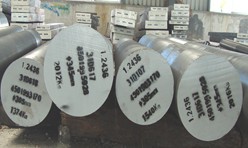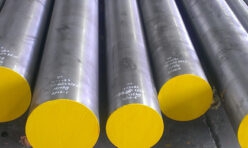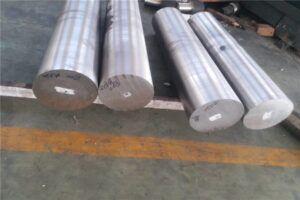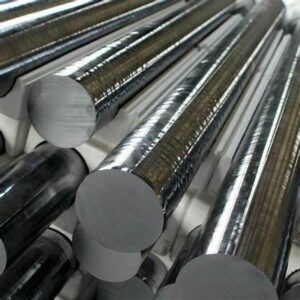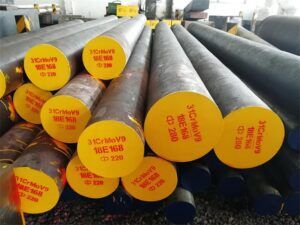SKD2 DIN 1.2436 Tool Steel
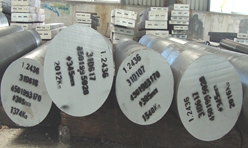
1.2436 D6 SKD2 DIN Tool Steel
1 1.2436 Introduction:
1.2436 DIN tool steel is a high-carbon, high chromium tool steel alloyed with tungsten that is characterized by high compressive strength, high wear resistance, high surface hardness and good hardening stability.
2 1.2436 Applications:
Typical applications for DIN1.2436 tool steel include blanking and shearing tools, drawing tools, drawing dies, mandrels, press tools, forming tools and shear blades. DIN1.2436 tool steel is suited to applications where maximum wear resistance is required.
3 Quality Standard:
BS EN ISO 4957-2000 Tool steels
4 All Grades Comparison:
| Material No. | JIS |
|---|---|
| 1.2436 | SKD2 |
5 1.2436 Chemical Composition(%)
| C | Si | Mn | P | S | Cr | W |
|---|---|---|---|---|---|---|
| 2.00-2.30 | 0.60 max | 0.60 max | 0.030 max | 0.030 max | 11.00–13.50 | 0.60–0.90 |
6 HEAT TREATMENT:
- FORGING: Heat the DIN1.2436 tool steel slowly and uniformly to 700°C then more rapidly to 900-1050°C. After forging cool slowly, preferably in a furnace.
- ANNEALING:DIN1.2436 tool steel is supplied in the annealed and machineable condition. Re-annealing will only be necessary if the tool steel has been forged or hardened by the toolmaker. To anneal heat to 800-840°C and slow furnace cool. Hardness after annealing will be approximately 225 brinell.
- STRESS RELIEVING:If machining operations have been heavy or if the tool has an unbalanced section, remove stresses before hardening by heating up to 650-700°C, equalise, then cool slowly.
- HARDENING:Pre heat slowly to 750-800°C and thoroughly soak. Continue heating to the final hardening temperature of 950-980°C and allow the component to be heated through. Cool in air or quench in oil. D6 is suitable for vacuum (high speed gas) hardening.
- TEMPERING: To temper heat uniformly and thoroughly at the selected tempering temperature and hold for at least one hour per 25mm of total thickness. Double tempering should be carried out with intermediate cooling to room temperature.
7 Mill′s test certificate:
EN 10204/3.1 with all relevant data reg. chem. composition, mech. properties and results of testing.

